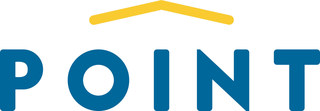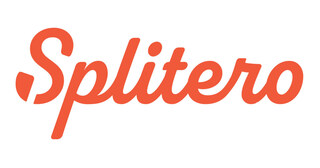5 Best Home Equity Sharing Companies of March 2026
One of the main benefits of homeownership is building up equity. While that equity can amount to cash in hand when it’s time to sell your house, you can also turn your home's increased value into cash without putting it on the market. Home equity loans, home equity lines of credit (HELOCs) and reverse mortgages are the most common tools for accessing equity while you’re still in your home. However, another option has emerged in recent years: home equity sharing agreements.
These unique arrangements allow you to sell a portion of your future equity to an investment company in exchange for a lump sum payment. Unlike other options, they don’t carry interest or monthly payments. If you're considering using your equity for cash and are looking for an alternative to traditional home equity products, equity sharing might be a good option. Read on for our reviews of the top home equity sharing companies.
What to know about home equity sharing
- Home equity sharing and home equity investments allow you to turn the equity you've gained into cash without taking out a loan.
- With home equity sharing agreements, an investor purchases a portion of your home’s future value, giving you a lump sum of cash in return.
- With a share appreciation product, you repay or buy back the invested amount, plus your investor’s share of your home’s appreciation at the end of the agreement term.
- There are no interest or monthly payments with home equity agreements. Most investors won't charge a penalty if you repurchase the investment option before the end of the term.
How we chose our top picks
Home equity sharing is a small industry. To choose our top home equity sharing companies, Money’s writers and editors evaluated the nine main home equity investors on the market, focusing on fees, payoff terms, geographic availability, credit score minimums, loan amounts and eligible property types. Our top picks highlight the best options for home equity sharing overall, as well as the best choices for specific consumer niches—such as investors, low-credit consumers, or those seeking higher payment amounts.
Read the full methodology to learn more.
Our top picks for the best home equity sharing companies of March 2026
- Point: Best overall
- Hometap: Best for large payment amounts
- Unlock: Best for flexible buyout options
- Unison: Best for good credit
- Splitero: Best perks
- Low credit score minimum
- Upfront fee on the lower side of companies analyzed
- 30-year payoff term
- Fairly wide availability
- Requires 30% equity
- No mobile or manufactured homes allowed
- Upfront fee:
- 3.9% of payment amount
- Availability:
- 25 states, plus Washington, D.C.
- Loan amounts:
- $30,000 to $600,000 (max of 20% of the home’s value)
- Minimum credit score:
- 500
- Payoff term:
- 30 years
- Property types allowed:
- Single-family residences, condos, one- to four-unit multifamily properties, townhomes, investment properties and second homes
Why we chose this company: Based on our analysis, Point is the top home equity-sharing company. Its wide nationwide availability, fairly low upfront fee, low credit score requirements and flexibility regarding property type make it a good choice for a wide swath of homeowners and investors looking to access their equity. Its long payoff term is notable as well, allowing you a full three decades before repayment comes due.
- One of the lowest upfront transaction fees
- Low credit score minimum
- Highest loan amounts of all analyzed
- Multiple property types allowed
- Only a 10-year payoff term
- Limited availability
- Upfront fee:
- 4.5% of payment amount
- Loan amounts:
- Up to $600,000 (max of 25% of the home’s value)
- Minimum credit score:
- 585
- Payoff term:
- 10 years
- Property types allowed:
- Single-family homes, condos, vacation properties, rental properties, one- to four-unit multifamily homes and manufactured homes
Why we chose this company: If you’re looking for a lot of cash or to access a sizable portion of your home’s equity, Hometap is likely your best bet. The investment company offers up to $600,000—the highest we found. You can even cash in on the equity in your vacation home, rental property or multifamily property. You must have a minimum credit score of 585, among other requirements, to qualify.
- Low minimum credit score
- Multiple property types allowed
- 30% equity required
- High upfront fee
- Only a 10-year payoff term
- Upfront fee:
- 4.9% of payment amount
- Availability:
- 26 state, plus Washington, D.C.
- Loan amounts:
- $30,000 to $500,000
- Minimum credit score:
- 500
- Payoff term:
- 10 years
- Property types allowed:
- Single-family homes, condos, two- to four-unit multifamily properties, townhomes, primary residences, second homes and rental properties
Why we chose this company: Unlock doesn't charge a prepayment penalty if you buy out your agreement before it ends. It also allows you to make partial payments throughout the term, making it easier for you to buy back your equity over time — an offer few other companies offer. Unlock not only invests in single-family homes but also in a variety of property types that other companies don't accept, such as multi-unit properties, townhomes, second houses and rentals. This variety of properties and buyout options provides homeowners with the flexibility that few other investment companies offer.
- Lower upfront fee compared to other options
- Below-market interest rate
- Limited availability
- Second homes and rentals aren’t eligible
- Upfront fee:
- 3% origination fee
- Availability:
- 9 states
- Loan amounts:
- $30,000 to $400,000 (max of 35% of the home’s value)
- Minimum credit score:
- 680
- Payoff term:
- 10 years
- Property types allowed:
- Owner-occupied primary residences, including single-family homes, townhouses and condos.
Why we chose this company: If you’ve got a great credit score, then Unison can be a smart choice for accessing your home equity. The company offers an equity sharing home loan with a below-market interest rate and allows homeowners to access up to $400,000 in equity. In exchange, you'll make low monthly payments over the 10-year term of the loan. You’ll repay any deferred interest plus the agreed-upon portion of your home's appreciated value when the agreement ends or you sell the property. There are no prepayment penalties if you terminate the agreement early. Unison primarily invests in owner-occupied primary residences.
- Allows repurchase terms as long as your main mortgage lasts
- Low minimum credit score
- Has an affiliated brokerage that will help you sell your house when it’s time
- Highest upfront fee of companies analyzed
- Limited availability
- Upfront fee:
- 4.99% of payment amount
- Availability:
- 13 states
- Loan amounts:
- Up to $500,000 (max of 25% of the home’s value)
- Minimum credit score:
- 500
- Payoff term:
- Up to your main mortgage’s term
- Property types allowed:
- Owner-occupied single-family homes, condos, townhomes, two- to four-unit multifamily properties
Why we chose this company: Although Splitero's fees are slightly higher than those of other equity sharing options we analyzed, it can give you an approval decision within one to two business days — one of the fastest approvals we found in our analysis. It also offers features that consumers may find appealing. Its investment terms range from 10 to 30 years. With Maturity Match, if you have a first-lien mortgage on your property, you won’t have to pay Splitero back until that first mortgage term is up. If you want to sell your house and reinvest your equity, the company offers a brokerage service that handles the heavy lifting for you.
Other companies we considered
There are a few home equity sharing companies compared to traditional equity lenders, but the number is growing. The following companies are relatively new to the market and didn't make our top picks, but could be worth considering.
AspireHEI
AspireHEI can purchase up to 15% of your home equity, up to $250,000. The 15-year repayment term is slightly longer than typical for this type of company, and there is no prepayment penalty if you decide to end the agreement early.
Why we didn't choose it: AspireHEI currently requires a credit score of 660, much higher than most of the companies on our list. It also accepts only single-family homes, making it less flexible than other options.
Bonus Homes
Bonus Hones offers what it calls a Home Appreciation Partnership. With this agreement, you receive a payout of all your home equity. Bonus then converts your home into a rental property and takes over its management, including finding tenants, paying the mortgage and providing all maintenance. You retain ownership of the property, and when the home sells, you'll receive a percentage of the home's appraised value.
Why we didn't choose it: The company currently limits the type of home that qualifies to single-family homes valued at less than $550,000. The mortgage rate must also be less than 4%, which may limit who can benefit from the agreement.
What you need to know about home equity sharing
Home equity sharing agreements, also known as home equity investments, allow you to sell a portion of your home’s future equity to an investor in exchange for a lump sum payment. You can then use the money for any purpose you’d like.
According to Kenon Chen, executive vice president of strategy and growth at property analytics firm Clear Capital, home equity sharing can be a helpful tool for borrowers who may not meet the eligibility requirements of more conventional home equity products.
"They're not a loan, so you have access to cash [without] needing to incur a monthly payment," Chen says.
There are only a few home equity sharing options on the market, and each one is limited geographically, with even the most accessible company on our list offering agreements in just 29 states. To choose the right home equity sharing company, start by checking your location to see which options are available.
Read more about how equity sharing works, who qualifies and the pros and cons of entering into this type of agreement. There are also other alternatives to consider if home equity investments aren't right for you.
How does home equity sharing work?
Equity sharing is an alternative way to access the cash value of your home's equity. It’s not a loan in any traditional or legal sense. Instead, you sell a portion of your home’s equity to an investor, who will generally allow you to buy that equity back after a specific number of years. So, if your home has $100,000 in equity, you may be able to sell 25% or more to an investor, who will give you cash for that share in exchange for an agreement that you will repay their investment in your home at the end of the agreed-upon term.
You’ll also be on the hook for a percentage of your home’s appreciation when the investment is over. This typically occurs either at a set interval, such as five years, or when your first mortgage is paid in full.
Cliff Andrews, president of the Coalition for Home Equity Sharing Partnership, says that home equity sharing agreements are directly associated with the future value of your home. If your house appreciates, you will need to pay the difference in value to your lender; however, a depreciation in your home could mean your obligation to the lender decreases.
“This built-in risk-sharing helps protect homeowners from market downturns and sets shared equity products apart from traditional debt-based financing options,” Andrews says.
Although you don’t have a payment to make and don’t take on any new debt, home equity sharing is not an easy way to access your equity and should be considered very carefully. If you are unable to repay the investor at the end of the term, you may need to sell your home to fulfill this obligation.
Most investors allow you to repurchase your equity early without penalty. If you pursue one of these equity sharing options, you should be putting money back at a rate that will allow you to reclaim your home’s equity so you can choose what happens at the end of your mortgage. Although they can be risky for homeowners, home equity sharing has a place in the real estate ecosystem. Be sure you fully understand the agreement before signing.
Who is eligible for home equity sharing?
Although specific eligibility requirements vary by company, homeowners generally need to meet the following criteria:
- Credit: Credit score and income requirements are more lenient than those for traditional loans. Typically, companies require homeowners to have a credit score of at least 500.
- Loan-to-value ratio (LTV): The LTV is the current loan balance, plus the new loan or home equity share agreement, divided by the home's current value. The resulting number reflects how much you owe on your debt; generally, you need an LTV below 70%. If you owe more money, you may not qualify.
- Investment amount: If you are unable to repay the investor at the end of the term, you may need to sell your home to fulfill this obligation. The amount you can receive depends on your home's value, your credit, and the company's eligibility criteria.
- Property use: Some companies limit the types of property eligible for home equity share agreements. For example, some only accept single-family, single-owner primary residences.
What are the pros and cons of home equity sharing?
As with any type of loan, there are benefits and risks when you enter into an equity sharing agreement. A full understanding of the pros and cons will help you determine whether a home equity investment is the right choice for you.
Pros:
- Access cash without incurring debt: Home equity sharing is one way to tap into your property's increased value without taking on a traditional loan. However, this does not mean that you’re not responsible for repayment. The equity you’ve sold can be repurchased before the end of your agreement, or you may have to sell your home to repay the obligation to your investor when the agreement term ends.
- No monthly payments: Because you’re not taking out a loan, you won’t have any monthly payments that can strain your budget or accumulate interest that will increase the borrowed balance.
- Flexibility: You can use the money you get any way you like, from making home repairs to paying off high-interest debt. This flexibility lets you make financial decisions that prioritize your needs and are best suited to your current circumstances.
- Easier qualification requirements: Home equity sharing companies tend to have lower credit score minimums, so you can qualify even if your credit score is below 600.
Cons:
- Loss of full ownership: When you enter an equity-sharing agreement, the investment company becomes a secondary lien holder, much like a traditional mortgage lender. If you don't want to give up control, you may be better off with a home equity loan or home equity line of credit (HELOC).
- Risks associated with both appreciation and depreciation: If your property appreciates, you'll have to share that appreciation with the investor based on the equity percentage they own. This can mean parting with a substantial sum upon the agreement's end. Conversely, if your property decreases in value, the investor may still be entitled to a return on their investment, meaning you may owe more than anticipated.
- Lump-sum payment: At the end of the equity sharing agreement, you will likely be required to make a large balloon payment to the investor. This payment can be substantial, particularly if the property has appreciated significantly. If you don't have the funds readily available, you may need to sell your home or take out a loan to repay the investor.
- Possible loss of a tax deduction for mortgage interest: If you typically take a mortgage interest deduction, you’ll not be able to deduct anything to do with your equity sharing agreement, since it’s not a mortgage, and no interest accumulates.
Alternatives to home equity sharing
Home equity sharing can be a useful way to tap your home's value without taking on new debt. But it isn't the right move for everyone.
It can be especially risky if you expect to sell or refinance your home in the near future, since doing so will require repayment to settle the share agreement. If you decide against home equity sharing but need access to cash, here are several alternatives:
Cash-out refinance
A cash-out refinance replaces your existing mortgage with a new, larger loan. The difference between your old balance and the new loan amount is paid out to you in cash, which you can use for home improvements, medical bills or other expenses.
Home equity loan
If you need a large lump sum and have good credit, a home equity loan allows you to borrow against the equity you've already built. These loans typically come with fixed interest rates and terms, and predictable monthly payments, making them a good option if you need a sizable amount upfront and have strong credit.
Home equity line of credit (HELOC)
A HELOC is similar to a home equity loan, except it gives you a revolving line of credit instead of a lump sum. You pay interest only on the amount you draw, and you can borrow, repay and borrow again during the draw period (similar to a credit card). HELOCs are helpful if you have an ongoing project or aren't sure how much your project will ultimately cost.
Personal loan
A personal loan can be a helpful alternative if you need a smaller sum or haven't built enough equity in your house yet. Personal loan lenders offer loans between $1,000 and $100,000, and you usually have two to seven years to repay the loan. Just keep in mind that these loans typically carry higher interest rates than home equity loans because they're unsecured and don't require collateral.
Latest news in home equity sharing
Decreasing interest rates and the large amount of equity held by most homeowners continue to make home equity products an attractive option for those looking for a quick source of cash.
According to the most recent data from analytics firm Cotality, homeowners have an aggregate of more than $17 trillion in accumulated equity — which can be tapped to help pay for unplanned home repairs, medical expenses or to pay off higher-interest debt.
While traditional home equity products, such as home equity loans andlines of credit, remain the more popular means of tapping into equity, a recent survey by home equity investment company Hometap suggests that homeowners may be looking for more flexible options. These options include products that have lower fees and closing costs, different repayment terms or the ability to pause payments and faster access to money — features that most home equity products already have.
Home Equity Sharing Companies FAQs
When does a home equity agreement make sense?
How does home equity sharing work?
What is the downside of an HEA?
How we chose the best home equity sharing companies
To select our top home equity sharing picks, we conducted extensive research to identify five key data points to assess companies. We then scored each company across those categories, resulting in an overall weighted score. Our weightings were as follows: Geographic availability (25%), payoff term (20%), maximum loan amount (20%), minimum credit score (20%) and eligible property types (15%). We favored companies with wide availability, long payoff terms, high loan amounts and low credit score requirements.
Below are the details for each data point we reviewed.
- Geographic availability: We assessed the availability of equity-sharing agreements and gave greater weight to companies licensed to operate in more states.
- Payoff terms: We evaluated each company on how long clients had to repay the investment, placing greater emphasis on longer terms.
- Maximum loan amount: Companies that offered higher maximum investment amounts were prioritized over those with lower caps.
- Credit score minimum: Home equity investments work differently from traditional loans. Although most will accept lower-than-usual credit scores, we prioritized those that had the lowest minimums.
- Eligible property types: Companies with more options were ranked higher than those with fewer options.
Aside from the above winners, other companies we considered included EquiFi, QuantumRE and HomePace.
Summary of our top picks for the 5 best home equity sharing companies of March 2026
- Point: Best overall
- Hometap: Best for large payment amounts
- Unlock: Best for flexible buyout options
- Unison: Best for good credit
- Splitero: Best perks












